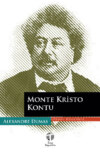Kitabı oku: «The Last Vendée», sayfa 45
"Ah, poor Bertha! poor Bertha!" said Mary, springing on her horse. "How shall I ever console myself for my happiness?"
The two young people were now in their saddles; they made a friendly sign to the master of the inn; Michel commended the letter once more to Courtin's care, and then they both rode away from the tavern of the Point du Jour.
At the end of the pont Rousseau they came near riding over a man who, in spite of the heat of the weather, was wrapped in a sort of mantle which almost hid his face. This sombre apparition alarmed Michel; he quickened his horse's pace and told Mary to do the same. After going about a hundred yards Michel turned round. The stranger had stopped, and, in spite of the darkness, was watching them.
"He is looking at us!" said Michel, feeling instinctively that they had just passed some great danger.
After the unknown man had lost sight of the riders he continued his way to Nantes. At the door of the Point du Jour he stopped, looked about him as if in search of some one, and saw a man reading a letter by the light of a lantern. He went up to the man, who, at the sound of his steps, looked round.
"Ah, it's you!" said Courtin. "Faith, you've just missed getting here too soon; a minute earlier and you would have found yourself in company you wouldn't have liked."
"Who were those two young people who nearly knocked me over on the bridge?"
"The very ones I mean."
"Well, what's the news, – good, or bad?"
"Both; but more good than bad."
"Is it to be to-night?"
"No; the affair is postponed."
"You mean failed, blunderer!"
Courtin smiled.
"It is true that luck has been against me since yesterday; but no matter! we must be satisfied with walking, not running, that's all. Though to-day is a failure, in view of immediate results, I wouldn't take twenty thousand francs for it."
"Ah, ha! you are sure of that?"
"Yes, very sure. The proof is that I've got hold of something already."
"What?"
"This," said Courtin, showing the letter he had just unsealed and read.
"A letter?"
"A letter."
"What's in it?" said the man in the cloak, putting out his hand to take the paper.
"One moment. We will read it together. I prefer to hold it, because it is intrusted to me for delivery."
"Well, let us read it," said the man.
They both went up to the lantern and read as follows: -
Come to me as soon as possible; you know the passwords.
Your affectionatePetit-Pierre.
"To whom is that letter addressed?" asked the man in the cloak.
"To Mademoiselle Bertha de Souday."
"Her name is not on the cover, nor at the bottom of the page."
"Because a letter might be lost."
"And you are commissioned to deliver that letter?"
"Yes."
The man gave a second glance at the paper.
"The writing is certainly hers," he said. "Ah! if you had only allowed me to accompany you we should have her by this time."
"What does that matter, if you are sure of her later?"
"Yes, true. When shall I see you again?"
"Day after to-morrow."
"Here, or in the country?"
"At Saint-Philbert-de-Grand-Lieu; that is half way between Nantes and my house."
"I hope next time you won't stir me up for nothing."
"I promise you that."
"Try to keep your word; I keep mine. Here's the money. See, I hold it ready, so that you may not have to wait for it."
He opened his wallet and showed the farmer, complacently, a mass of bank-bills amounting probably to a hundred thousand francs.
"Oh," said Courtin, "only paper!"
"Paper, of course, but signed 'Garat;' that is a good signature."
"No matter," said Courtin; "I prefer gold."
"Well, gold you shall have," said the other, replacing the portfolio in his pocket and crossing his mantle over his coat.
If the pair had not been so engrossed in their conversation they would have seen that a peasant had climbed the wall between the street and the courtyard by the help of a cart which stood outside, and was listening to what they said, and gazing at the bank-notes with an air which implied that in Courtin's place he would have been quite satisfied with Garat's signature.
"Very good; then the day after to-morrow at Saint-Philbert," repeated the man in the cloak.
"Day after to-morrow."
"What time?"
"Evening, of course."
"Say seven o'clock. The first comer will wait for the other."
"But you'll bring the money?"
"You mean the gold? yes."
"All right."
"Do you expect to bring the matter to conclusion then?"
"I hope to. It costs nothing to hope."
"Day after to-morrow, at Saint-Philbert, seven o'clock," muttered the peasant on the wall, letting himself gently down into the street. "We'll be there." Then he added with a laugh that sounded terribly like the grinding of teeth: "When a man is branded he ought to earn his label."
XXXII.
THE MARQUIS DE SOUDAY DRAGS FOR OYSTERS AND BRINGS UP PICAUT
Bertha, who had left the farmhouse at La Logerie at the same time as Michel, reached, her father after a tramp of about two hours. She found him extraordinarily depressed and utterly disgusted with the hermit's life he was leading in Maître Jacques' warren, though the latter had arranged it for his personal comfort and installed him safely in it.
From a feeling that was purely chivalrous, Monsieur de Souday had not been willing to leave the country so long as Petit-Pierre was in it, and in danger. Therefore, when Bertha came to him with the news of the duchess's probable departure, the old Vendéan gentleman resigned himself, though without heartiness, to follow the advice of General Dermoncourt and depart for the third time to foreign lands.
He and his daughter left the forest of Touvois at once. Maître Jacques, whose hand was now nearly well, though it lacked two fingers, wished to accompany them to the coast and assist in their embarkation.
It was midnight when the three travellers, following the high-road from Machecoul, reached the heights above the valley of Souday. As the marquis looked at the four weathercocks on his four towers, which were shimmering in the moonlight above the sea of verdure which surrounded them, he sighed. Bertha heard him and came nearer to his side.
"What is it, father?" she said. "What are you thinking of?"
"Of many things, my poor child," he answered, shaking his head.
"Don't take gloomy thoughts into your head, father. You are still young and vigorous; you'll see the house again some day."
"Yes," said the marquis, with another sigh, "but-" he stopped, half choking.
"But what?" asked Bertha.
"I shall never see my poor Jean Oullier again."
"Alas!" said the girl.
"Oh, house, – poor house!" said the marquis; "how empty you will seem to me without him!"
Though there was really more of egotism than attachment to his faithful servant in the marquis's regret, if Jean Oullier could have heard that lament it would certainly have touched him deeply.
Bertha resumed the subject.
"Do you know, father," she said, "I can't help fancying, though I am sure I don't know why, that our poor friend, in spite of all they say, is not dead. It seems to me that if he were really dead I should have wept more for him; a secret hope, which I can't explain, comes and stops my tears."
"That's odd," interrupted Maître Jacques; "but I have just the same feeling. No, Jean Oullier is not dead; and I have something better than presumption to go upon, – I saw the body they said was his, and I couldn't recognize it."
"Then what has become of him?" asked the marquis.
"Faith, I don't know!" replied Maître Jacques; "but I keep expecting every day to get news of him."
The marquis sighed again. At this moment they were passing through an angle of the forest. Perhaps he was thinking of the hecatombs of game he and his faithful keeper had piled beneath those verdant arches, – a sight, alas! he might never see again. Perhaps the few words said by Maître Jacques had opened his heart to a renewed hope of recovering his old friend. The latter supposition is the more probable, for he urged the master of rabbits to make most particular inquiries about Jean Oullier's fate, and to let him know the result.
When they reached the seashore the marquis would not wholly conform to the plan laid down by Michel and Bertha for his embarkation. He feared that if they followed the shore along the bay of Bourgneuf, as agreed upon, they might draw the attention of the coast-guard cutter to the schooner; nothing would induce him to incur the reproach of compromising Petit-Pierre's safety for personal considerations, and he decided that the proper thing to do was for himself and daughter to go out to sea and meet the "Jeune Charles."
Maître Jacques, who had friends and accomplices everywhere, soon found a fisherman who was willing, for the consideration of a few louis, to take them in his boat to the schooner. The little craft was drawn up on the shore. The marquis and Bertha, instructed by Maître Jacques, who was familiar with all smuggling man[oe]uvres, slipped into it and escaped the eyes of the custom-house officers who watched the coast. An hour later the tide floated the boat; the owner and his two sons, who served as crew, got into her and put out to sea.
As it still wanted half an hour till daybreak, the marquis did not wait till the boat was in the offing to come out of his hiding-place in the little deck cabin, where he was even more cribbed and confined than in Maître Jacques' burrow. As soon as the fisherman saw him he began to ask questions.
"You say, monsieur, that the vessel you expect is coming from the mouth of the Loire?"
"Yes," replied the marquis.
"At what hour was she to leave Nantes?"
"From three to five this morning," said Bertha.
The fisherman consulted the wind.
"The wind is southwest," he said; "the tide was high at three o'clock. We ought to meet them between eight and nine; it will take them four hours to get here. Meantime, in order not to attract attention from the coast-guard, we had better throw over some drag-nets and make a pretence of fishing, to explain our being here."
"Make a pretence!" cried the marquis; "why, I should like to fish in good earnest! All my life I have wanted the opportunity for that sport; and faith, as I can't hunt in Machecoul this year, it is a fine compensation which Heaven sends me, – too fine to miss it!"
In spite of Bertha's cautions-for she feared her father's great height might attract attention-the marquis began to work with the fisherman at once.
The net was thrown out and allowed to drag for some time at the bottom of the sea; but before long, the Marquis de Souday, who had valiantly hauled on the ropes to bring the net to the surface, was as delighted as a child with the shining mass of eels, turbot, plaice, skate, and oysters which came up palpitating from the depths of the sea. He at once forgot his griefs, his hopes, his memories; he forgot Souday and the forest of Machecoul, the marches of Saint-Philbert, the great moors; and with them he forgot wild-boars, deer, foxes, hares, partridges, and snipe, and thought only of the shining population with smooth or scaly skins which each throw of the net produced before his eyes.
Daylight came.
Bertha, who till then had sat in the bows absorbed in thought, watching the waves as they parted at the prow of the little vessel and floated away in two phosphorescent furrows, – Bertha now climbed on a coil of rope to examine the horizon.
Through the morning mists, thicker at the mouth of the river than elsewhere, she could see the tall masts and spars of several vessels; but none of them carried the blue pennant by which they were to recognize the "Jeune Charles." She observed this to the fisherman, who assured her, with an oath, that it was impossible for the schooner, if she left Nantes during the night, to have made the open sea already.
The marquis did not give the worthy fisherman and his men much time for discussion, for he was so pleased with his taste of their trade that he allowed no spare time between the throws of the net; and any little pause that occurred he filled up with questions to the old sailor on the rudiments of nautical science.
It was in the course of this instructive conversation that the fisherman requested him to observe that by throwing the net as a drag they were forced to make long tacks, and that this method of proceeding would end by leading them astray from their post of observation. But the marquis, with that careless indifference which was the basis of his character, paid no attention to the skipper's argument, and continued to fill the hold of the boat with the products of the haul.
The morning went by. It was ten o'clock, and still no vessel approached them. Bertha became very uneasy; she mentioned her fears to her father several times, and at last with so much urgency that the marquis could do no less than consent to go nearer to the mouth of the river. He profited by the man[oe]uvre, however, to make the old sailor teach him how to haul his wind, – that is to say, how to trim his sails so as to make as slight an angle with the keel as the rigging would allow. They were in the most tangled part of the demonstration when Bertha uttered a cry.
She had just seen at a few hundred feet from the boat a large vessel with all sail spread, to which she had hitherto paid no attention, as it did not fly the promised signal, and was now partly hidden by the jib of the boat.
"Look out! look out!" she cried; "there's a ship coming down upon us!"
The fisherman saw in an instant the danger that threatened them, and springing to the helm he wrenched it from the hand of the marquis, then, without observing that he knocked the latter flat on the deck, he managed to get the boat round to windward of the ship, which was close upon them. Rapid as the man[oe]uvre was, he could not prevent a slight collision; the boom of the lugger's mainsail grazed the side of the schooner with a loud noise, her gaff was entangled for a moment with the latter's bowsprit; the boat heeled over, shipped a sea, and if the skipper's rapid man[oe]uvre had not enabled him to catch the wind, she might not have righted as rapidly as she did, or perhaps not have righted at all.
"The devil take that damned coaster!" cried the old fisherman. "Another minute and we should have gone to the bottom in exchange for the fish we've just caught!"
"Go about! go about!" cried the marquis, exasperated by his fall. "After him! the devil take me if I don't board him and ask the captain what he means by such insolence!"
"Do you expect me," said the old sailor, "with my one sail and two poor jibs, to overhaul a craft of that kind? Look at his canvas, the villain! – every stitch set! And see how it draws!"
"Yet we must overtake him!" cried Bertha, running aft. "It is the 'Jeune Charles!'"
And she showed her father a broad, white band at the stern of the other vessel on which could be read, in letters of gold. "LE JEUNE CHARLES."
"Faith, you are right, Bertha!" cried the marquis. "Go about, my friend, go about! But why doesn't he carry the signal agreed upon with Monsieur de la Logerie? And why, instead of steering for the bay of Bourgneuf, is he heading east?"
"Perhaps some accident has happened," said Bertha, turning pale.
"God grant it may not be to Petit-Pierre!" muttered the marquis.
Bertha admired her father's stoicism, but in her heart she murmured: "God grant it may not be to Michel!"
"Never mind!" said the marquis, "we must find out what all this means."
The lugger had meantime gone about, and again catching the wind, began to move rapidly through the water; this man[oe]uvre on a vessel of her size could be done so quickly that the schooner, in spite of her volume of sail, did not get far in advance. The fisherman was able to hail her.
The captain appeared on the poop.
"Are you the 'Jeune Charles' from Nantes?" asked the skipper of the boat, making a trumpet of his two hands.
"What's that to you?" answered the captain of the schooner, whose good humor did not seem to be restored by the certainty of having evaded the clutches of the law.
"I have folks aboard for you!" cried the fisherman.
"More messengers! A thousand devils! I tell you if you bring me any more such fellows like those I have had this night, I'll run you down, you old oyster-dredger, before I let 'em aboard!"
"No, they are passengers! Aren't you looking out for passengers?"
"I'm looking out for a good wind to take me round Cape Finisterre!"
"Let me come alongside," said the fisherman, at Bertha's suggestion.
The captain of the "Jeune Charles" looked at the sea, and not perceiving between himself and the coast anything to warrant apprehension, and desirous, moreover, to know if the passengers asking to come aboard were those for whom his vessel was chartered, he did as the fisherman requested, hauled down his foresail and mainsail and brought-to his vessel sufficiently to throw a line to the lugger and bring her alongside.
"Now, then!" cried the captain, leaning over his bulwarks, "what's all this about?"
"Ask Monsieur de la Logerie to come and speak to us," said Bertha.
"Monsieur de la Logerie is not aboard of me," replied the captain.
"But," returned Bertha, in a troubled voice, "at any rate, you have two ladies, haven't you?"
"Ladies or passengers, I haven't any," said the captain; "except a rascal in irons down in the hold, where he is cursing and swearing fit to take the masts out of the ship and make the bulkhead he's lashed to tremble."
"Good God!" cried Bertha, trembling herself. "Do you know if any accident has happened to the persons who were to embark on your ship?"
"Faith, my pretty young lady," said the captain, "if you would tell me what all this means you would oblige me greatly; for the devil is in it if I can make out anything about it. Last night two men came on board, both from Monsieur de la Logerie, with two different messages: one ordered me to sail at once; the other told me to stay where I was. One of these men was an honest farmer, – a mayor, I think, for he showed me a bit of a tricolor scarf. It was he who told me to up anchor and be off as fast as I could. The other, who wanted me to stay, was an old galley-slave. I put faith in the most respectable of the two, for, after all, his advice was safest, and I came away."
"My God!" exclaimed Bertha, "it must have been Courtin; some accident has happened to Monsieur de la Logerie!"
"Do you want to see the other man?" asked the captain.
"What man?" said the marquis.
"The one I've got below in irons. You may recognize him, and then we shall get at the truth of this business, – though it is too late now to do any good."
"Too late to get away, – yes, that may be," said the marquis; "but not too late to save our friends if they are in any peril. Show us the man!"
The captain gave an order, and a few seconds later Joseph Picaut was brought on deck. He was still chained and bound; but, in spite of his bonds, he had no sooner caught sight of the coast of La Vendée, which he thought he was fated never to see again, than, without reckoning distance, or the impossibility of swimming, bound as he was, he tried to escape his captors and fling himself into the sea.
This happened on the starboard side forward, so that the passengers in the lugger, which was now to leeward near the stern of the vessel, could not see what happened; but they heard Joseph Picaut's cry and knew that a struggle of some kind was taking place on the schooner. The fisherman pushed his boat along the side of the ship, and they then saw Joseph Picaut struggling in the grasp of four men.
"Let me jump into the water!" he was shouting. "I'd rather die at once than rot in that hole!"
He might possibly have succeeded in flinging himself overboard if he had not at that instant recognized the faces of the Marquis de Souday and Bertha, who were looking up at him in amazement. "Ah, Monsieur le marquis! ah, Mademoiselle Bertha!" cried Picaut; "you will save me, won't you? It is for executing Monsieur Michel's orders that this brute of a captain treats me as he does; and the lies of that scoundrel Courtin are at the bottom of it."
"Now, then, I want to know the truth about all this," interposed the captain. "If you can relieve me of that blaspheming fellow I shall be glad enough; for I'm not bound for either Botany-Bay or Cayenne."
"Alas!" said Bertha, "it is all true, captain. I don't know what motive the mayor of La Logerie could have had to send you to sea without your passengers; but it is very certain that this man is the one who told you the truth."
"Unbind him, then! Ten thousand cat-o'-nine-tails! let him go hang where he pleases! Now, as for you, what do you want? Are you coming with me, or are you not? It won't cost any more to take you or leave you. I was paid in advance; and to ease my conscience I'd rather like to take somebody."
"Captain," said Bertha, "isn't it possible to go back up the river and let our friends embark to-night as they meant to do last night?"
"Impossible!" replied the captain, shrugging his shoulders. "Think of the custom-house officers and the river-police! No, no; a plan postponed is a plan defeated. Only, I say again, if you wish to use my vessel to get over to England, I am at your service, and it shall cost you nothing."
The marquis looked at his daughter, but she shook her head.
"Thank you, captain, thanks," replied the marquis. "It is impossible."
"Then we had better part company at once," said the captain. "But before we do so, let me ask you to do me a service."
"What is it?"
"It is about a little note of hand which I will give you, duly signed, requesting you to draw my share of it when you draw your own."
"I'll do anything to please you, captain," said the marquis, affably.
"Very good; then add one hundred lashes on the back of the fellow who fooled me last night, in addition to your own."
"It shall be done," replied the marquis.
"If he has any strength to bear them after he has paid what he owes to me," said a voice.
At the same instant a heavy body fell into the water, and the head of Joseph Picaut was seen about ten paces off, its owner swimming vigorously to the lugger. Once freed of his irons, the Chouan, fearful, no doubt, that some unforeseen circumstance should detain him on the vessel, had plunged head foremost over the schooner's bulwark.
The skipper and the marquis gave him each a hand, and Joseph Picaut clambered into the boat. He was scarcely there before he shouted: -
"Monsieur le marquis, tell that old whale up there that the brand on my shoulder is a cross of honor!"
"Yes, captain, that's true!" cried the marquis. "This peasant was sent to the galleys for doing his duty in the days of the Empire, – his duty as we see it, I mean; and though I don't wholly approve of the means he took, I can declare to you that he has not deserved the treatment you gave him."
"Very well," said the captain, "that's all right. Once, twice, thrice, will you come aboard, or will you not?"
"No, captain, thank you."
"Then good-bye, and better luck."
So saying, the captain signed to the helmsman, the schooner paid off into the wind, the sails were squared again, and the vessel sailed rapidly away, leaving the lugger stationary.
While the old fisherman was working his boat to shore, Bertha and her father held counsel together. In spite of Picaut's explanations (and those explanations were brief, the Chouan having only seen Courtin at the moment when he was seized and bound) they could not understand the motives of the mayor of La Logerie. His conduct, however, was plain enough, and seemed to them extremely suspicious, – although, as Bertha now told her father, he had shown a true devotion to Michel during his illness, and had often expressed to her the utmost attachment to his young master. The marquis, however, was strongly of opinion that his present tortuous behavior concealed some scheme that was not only dangerous to Michel's safety, but to that of their other friends.
As for Picaut, he declared plainly that he lived and breathed for vengeance only, and that if Monsieur de Souday would give him a suit of sailor's clothes to replace those which were torn from his back in the struggles he had gone through, he would start for Nantes the instant he touched land.
The marquis, convinced that Courtin's treachery was in some way connected with Petit-Pierre, wished to go to the town himself; but Bertha, who believed that Michel, finding the escape a failure, would return to the farmhouse at La Logerie, where he would expect her to join him, persuaded her father to put off entering Nantes till he could get some more definite information.
The fisherman landed his passengers at the Pornic point. Picaut, for whose benefit the skipper's son had given up his spencer and his oilskin cap, started across country in a bee-line for Nantes, swearing in every key that Courtin had better look out for himself. But before leaving the marquis he begged him to tell Maître Jacques all the particulars of his adventure, feeling quite certain that the master of the warren would fraternally assist in his revenge.
It was thus that, thanks to his knowledge of localities, he was able to reach Nantes about nine that evening; and going, naturally, to his old post at the Point du Jour, he overheard a part at least of the conversation between Courtin and the mysterious individual of Aigrefeuille, and saw the money, or rather the bank-bills, which Courtin did not regard as valuable until they were changed into coin.
As for the marquis and his daughter, it was not until nightfall that they ventured, notwithstanding Bertha's impatience, to start for the forest of Touvois; and it was not without actual grief of heart that the old gentleman thought of the happy morning he had spent among the fishes, reflecting that it would have no morrow, and that he was fatally condemned to live, for an indefinite time, like a rat in his hole.










